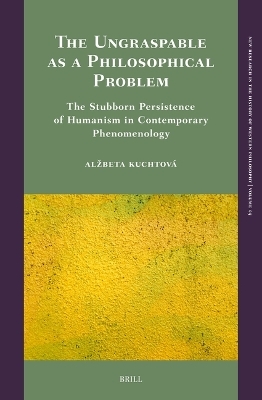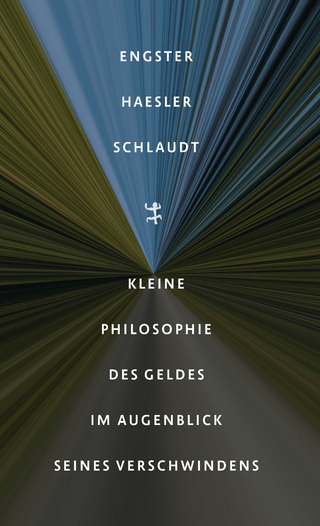
The Ungraspable as a Philosophical Problem
The Stubborn Persistence of Humanism in Contemporary Phenomenology
Seiten
2024
Brill (Verlag)
978-90-04-70109-0 (ISBN)
Brill (Verlag)
978-90-04-70109-0 (ISBN)
The book provides an analysis of the ungraspable. In sensible reality, we often speak of the “untouchable,” the “invisible,” the “inaudible,” and the “untastable.” In the abstract realm, we speak of the “non-conceptual,” the “ineffable,” the “unsayable.” These are the modalities of the ungraspable that are explored in this study.
The Ungraspable as a Philosophical Problem provides an analysis of the ungraspable—of that which cannot be grasped by the mind or the senses. When referring to the ungraspable in sensible reality, we often speak of the “untouchable,” the “invisible,” the “inaudible,” and the “untastable.” In the abstract realm, we speak of the “non-conceptual,” the “ineffable,” the “unsayable.” These are the modalities of the ungraspable that are explored in this study. They have been considered absolute by some thinkers, a claim that I critically assess. My central claim is that the absoluteness of these modalities is linked to a desire to grasp, which is characterized by the desire for exactitude, for the proper, and for domination. First, I examine the role of the hand in phenomenology, more precisely in Martin Heidegger’s philosophy, in order to further define the notion of the ungraspable. I then analyze Emmanuel Levinas’s early works, which offer an account of the ungraspability of nature (the there is). I then turn to Jacques Derrida, who has proved that otherness is not only human but also animal and theoretical, but who devotes little space to the otherness of the more-than-human, or inorganic objects. Finally, I examine the otherness of so-called inorganic or more-than-living objects (natural objects and artifacts), demonstrating its importance to our current situation.
The Ungraspable as a Philosophical Problem provides an analysis of the ungraspable—of that which cannot be grasped by the mind or the senses. When referring to the ungraspable in sensible reality, we often speak of the “untouchable,” the “invisible,” the “inaudible,” and the “untastable.” In the abstract realm, we speak of the “non-conceptual,” the “ineffable,” the “unsayable.” These are the modalities of the ungraspable that are explored in this study. They have been considered absolute by some thinkers, a claim that I critically assess. My central claim is that the absoluteness of these modalities is linked to a desire to grasp, which is characterized by the desire for exactitude, for the proper, and for domination. First, I examine the role of the hand in phenomenology, more precisely in Martin Heidegger’s philosophy, in order to further define the notion of the ungraspable. I then analyze Emmanuel Levinas’s early works, which offer an account of the ungraspability of nature (the there is). I then turn to Jacques Derrida, who has proved that otherness is not only human but also animal and theoretical, but who devotes little space to the otherness of the more-than-human, or inorganic objects. Finally, I examine the otherness of so-called inorganic or more-than-living objects (natural objects and artifacts), demonstrating its importance to our current situation.
Alžbeta Kuchtová, Ph.D. (1992), Slovak Academy of Sciences, is Researcher at Institute of Philosophy. She has published translations and articles on French Philosophy, including Humanity as a New Image of the Divine Absoluteness (Brill, 2023).
| Erscheinungsdatum | 22.08.2024 |
|---|---|
| Reihe/Serie | New Research in the History of Western Philosophy ; 5 |
| Verlagsort | Leiden |
| Sprache | englisch |
| Maße | 155 x 235 mm |
| Gewicht | 686 g |
| Themenwelt | Geisteswissenschaften ► Philosophie ► Metaphysik / Ontologie |
| ISBN-10 | 90-04-70109-5 / 9004701095 |
| ISBN-13 | 978-90-04-70109-0 / 9789004701090 |
| Zustand | Neuware |
| Haben Sie eine Frage zum Produkt? |
Mehr entdecken
aus dem Bereich
aus dem Bereich
Buch | Hardcover (2024)
Matthes & Seitz (Verlag)
28,00 €


